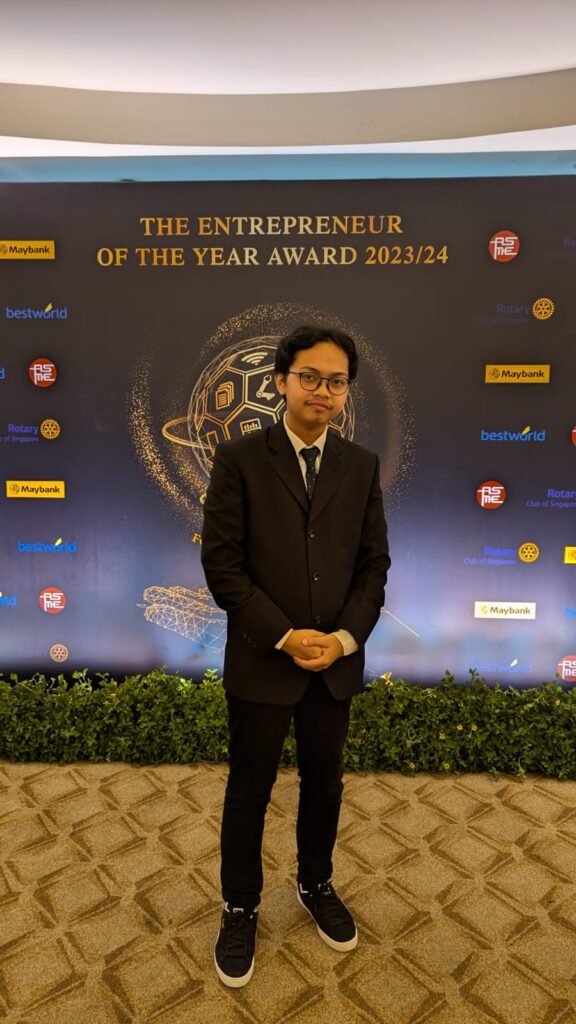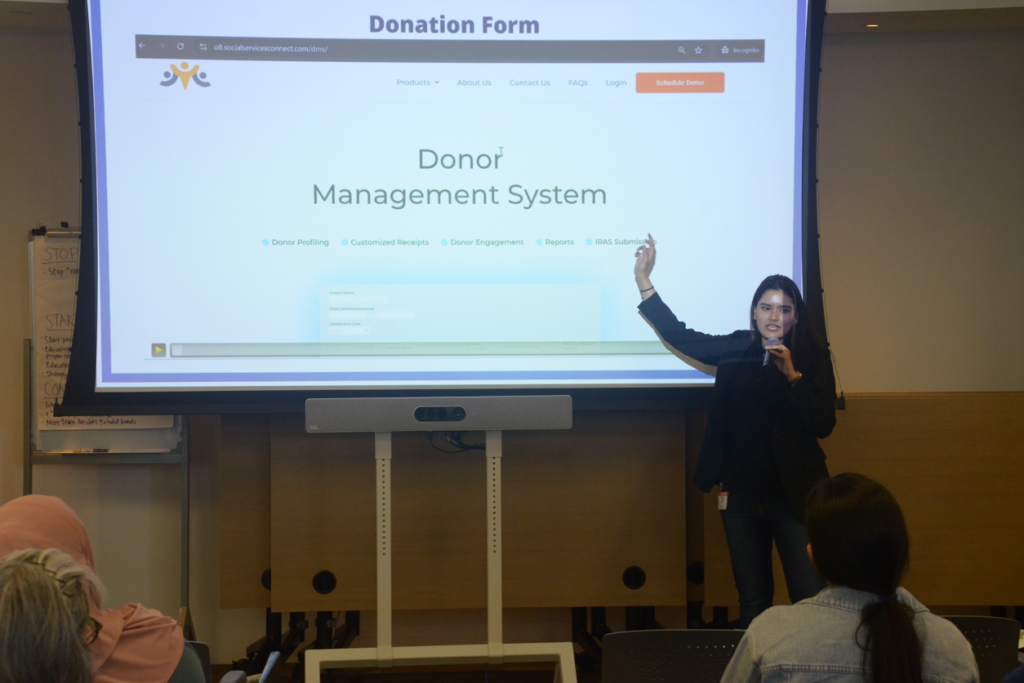Digital Transformation During COVID-19: How Singapore's Charities Adapted with Technology
By Lawrence Luan, Founder of Octopus8
The Day Everything Changed
March 2020. I remember staring at my computer screen as Singapore announced its circuit breaker measures. Nobody—not individuals, organizations, or even the government—was fully prepared for what was coming. As lockdown stretched from weeks into months, the fear of losing loved ones hung heavy in the air. For many, there seemed to be no silver lining on the horizon.
But Singaporeans did what we do best: adapt and overcome together.
Our government and citizens worked together impressively, implementing various measures and rolling out support schemes to help our most vulnerable. Businesses scrambled to go digital as offices emptied and homes became workspaces overnight.
"How Will We Access Our Client Files?"
For Singapore's charity sector, this question echoed across Zoom calls in those early days. Without access to hardcopy case files locked in office cabinets, many organizations were paralyzed.
"We have over 2,000 beneficiary files in the office," one executive director told me during a frantic call. "How can our social workers continue supporting them without this information?"
This crisis became the unexpected catalyst that finally accelerated digital transformation across a sector that had been hesitant to change for years.
A Digital Lifeline from NCSS
The National Council of Social Service (NCSS) responded swiftly with their Tech-and-GO! program, offering a comprehensive roadmap for charities of all sizes. From "Start Digital" initiatives for beginners to "Green Lane" sector-specific solutions for more complex needs, they created clear pathways for organizations to digitize quickly.
The program covered everything charities needed:
- Client Management: Case management systems to track beneficiary information
- Operations: Accounting, HR, and booking systems to keep organizations running
- Engagement: Donor and volunteer management platforms to maintain support
- Service Delivery: Online meeting solutions and even telepresence robots for remote services
For organizations with unique requirements, the Tech-and-GO! The Go Digital program provided a streamlined application process, removing the financial barrier that had previously blocked digital adoption.
Projects in a Pandemic: Octopus8's Growth Challenge
As COVID-19 forced charities to embrace technology overnight, Octopus8 experienced sudden, overwhelming growth. Many charities came to us for help—more than we had served in our entire history before the pandemic.
Our small team faced a daunting challenge: our clients were first-time digital adopters with high expectations for systems that would allow their staff to focus on beneficiaries while adapting to pandemic constraints.
"I've never even used a database before," confessed one social worker during training. "And now I'm supposed to manage my entire caseload online?"
The implementation process tested every aspect of our capabilities—our technical knowledge, our patience, our resilience, and our ability to manage expectations when things didn't go perfectly. Those months felt like decades.
The Moment I Almost Gave Up
Then came the breaking point. My technical advisor—the backbone of our infrastructure—left the team due to personal reasons.
I remember sitting alone in our empty office (everyone else was working from home), staring at my laptop as urgent messages piled up from clients facing technical issues. With no one to turn to for the complex server problems we were facing, I came dangerously close to shutting down Octopus8 entirely.
That night, I drafted an email explaining to our clients that we couldn't continue. My finger hovered over the send button.
But I couldn't do it.
The Intern Who Saved Our Company

The next morning, Alfian, a young ITE intern who had been quietly observing our server setup, approached me virtually.
"Mr. Lawrence, I think I can help with the server issues," he messaged me hesitantly.
I was skeptical. How could an intern alimited experience handle the complex cloud infrastructure our entire operation depended on? But we had no other options.
Fortunately, our departing tech advisor had provided a thorough handover of critical information. Still, what happened next amazes me to this day. Alfian took that foundation and ran with it, mastering the complexities of our AWS cloud setup in an incredibly short time. He worked through weekends and nights, building on the handover knowledge, reading documentation, and methodically solving problems one by one.
Within weeks, our infrastructure was more stable than it had ever been. A young intern had essentially saved our company by shouldering responsibilities far beyond his years or formal qualifications.
The Lunch That Changed Everything

With infrastructure stabilizing, we still needed strong technical leadership. I reached out to Casuarina (Cas), a bright former university intern who had gone on to work at a multinational tech giant.
I invited her to lunch at Marina Square, where I shared our vision for transforming Singapore's social sector through technology. Despite the risks, I asked her to join our small, struggling company—leaving behind the security and prestige of her corporate role for an uncertain journey with greater purpose.
After our lunch, the wait was agonizing. I kept checking my phone, waiting for her response, alternating between hope and preparing for rejection. Again, I found myself praying for guidance.
When Cas messaged me on December 28, 2022: "After much consideration, I have decided to take up the offer and follow my heart," I stared at my screen in disbelief. Then I jumped up and cheered so loudly that my family ran into the room to see what had happened.
From Crisis to Capability
With Cas's leadership, Alfian's technical support, and the dedication of our entire team, we experienced a remarkable turnaround. We not only stabilized our operations but began delivering projects that exceeded expectations.
One by one, we rolled out successful implementations. Social workers who had initially been resistant to technology started telling us how the systems were transforming their work, allowing them to spend less time on paperwork and more time with beneficiaries—especially crucial during the pandemic when vulnerable populations needed more support than ever.
Against all odds, Octopus8 established itself as the leading tech provider in Singapore's social service sector. We successfully delivered all projects, transforming how these organizations operated in the midst of a global crisis.
Five Lessons for Leading Through Crisis
Looking back at this intense period, several key insights stand out for any organization facing transformation during crisis:
- Crisis removes barriers to change - The pandemic accomplished in months what might have taken a decade of convincing in normal times
- Young talent can deliver extraordinary results - Don't underestimate those with limited experience but unlimited dedication
- Purpose attracts exceptional people - Our mission to serve the social sector helped us attract talent that money alone couldn't buy
- Implementation matters more than technology - The most sophisticated solution fails without proper support and training
- Resilience isn't about never falling - It's about getting up one more time than you fall
Building a Digitally Resilient Charity Sector
As Singapore moves beyond the acute crisis phase, charities can build on the digital foundations established during the pandemic by:
- Consolidating gains: Formalizing emergency processes into permanent improvements
- Integrating systems: Ensuring various digital tools work together effectively
- Developing internal champions: Training staff to become digital advocates
- Planning for sustainability: Budgeting for ongoing digital maintenance and updates
- Sharing knowledge: Helping other organizations learn from your experience
The Unexpected Silver Lining
The pandemic brought tremendous suffering, but it also forced Singapore's charity sector to undergo a digital revolution that has fundamentally changed how organizations serve their beneficiaries.
At Octopus8, we're proud to have played a part in this transformation. The challenges were immense, but seeing these organizations emerge stronger, more efficient, and better equipped to serve their communities makes every difficult moment worthwhile.
As one executive director told me recently: "We wouldn't have digitalized for another five years if COVID hadn't forced our hand. Now we can't imagine working any other way."
In my next article, I'll share specific case studies of Singapore charities that successfully implemented digital transformations during COVID-19, highlighting the concrete benefits they've experienced and how these changes have enhanced their ability to serve beneficiaries.
